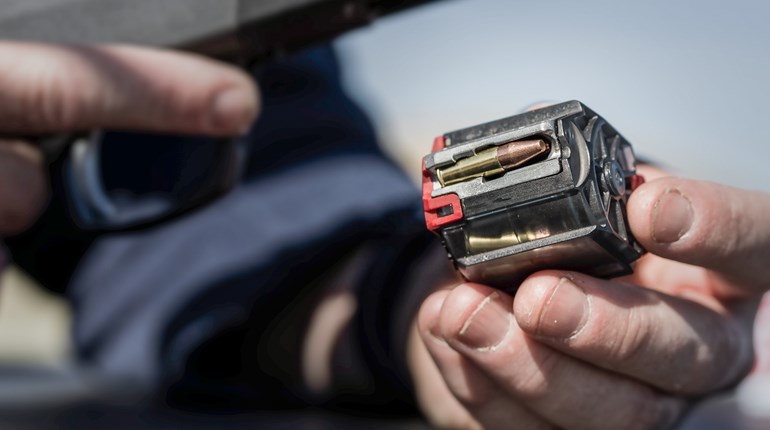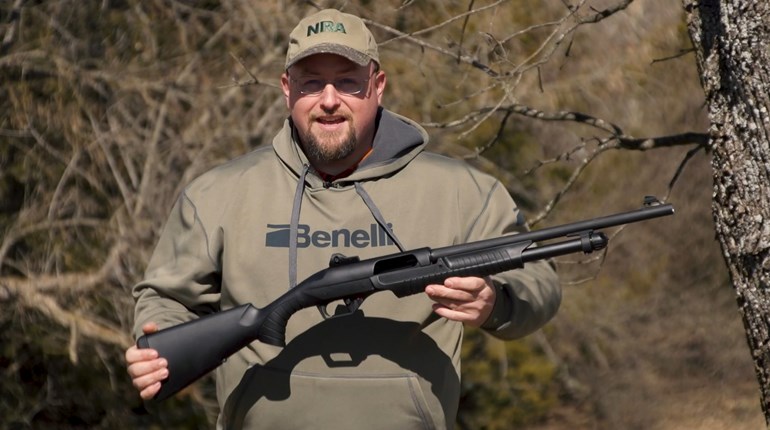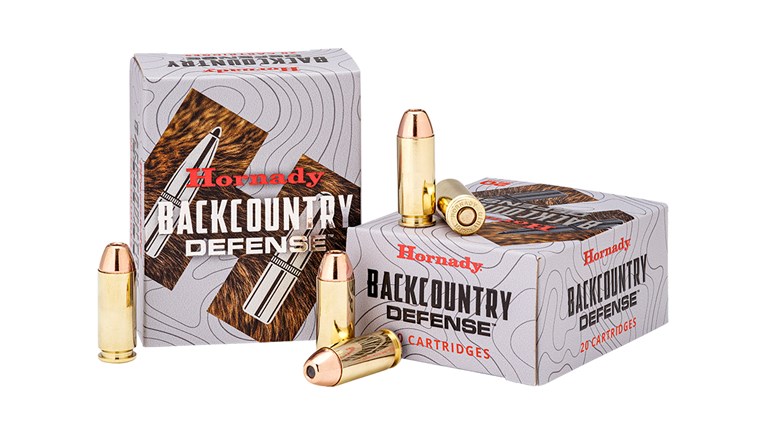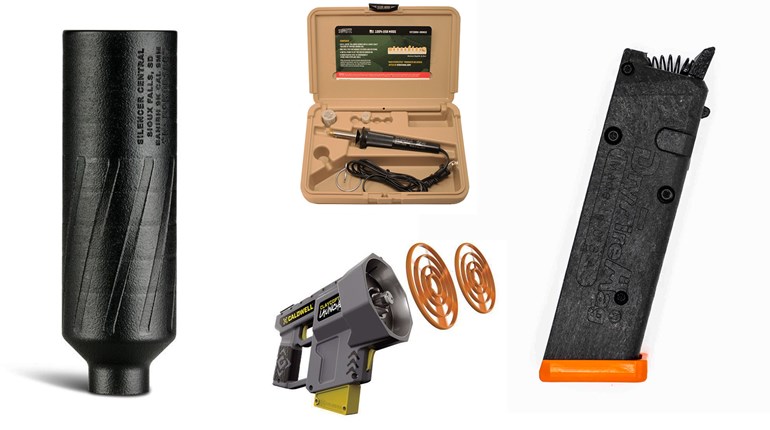
Recent .22-caliber introductions from Taurus, Ruger and Kel-Tec offer low-cost training, but are they suitable for personal defense?
The recent introduction by Ruger of a couple new pistols has rekindled the ancient debate, beloved of gun counters and internet firearms forums, of how much caliber is really enough for effective personal protection.
Ruger’s new Ruger-57, which is sort of an FN Five-seveN for everyone, may have single-handedly revived the 5.7x28 mm round. The cartridge was developed in response to a late-Cold War need to give rear-area personnel a cartridge that could defeat Soviet body armor when fired from a submachinegun-like Personal Defense Weapon, or “PDW.” The 5.7’s original design concept was that a 5.7 mm bullet that penetrated armor would do more damage than a 9 mm or .45-caliber bullet that didn’t.
The handgun firing the same cartridge, FN’s Five-seveN was almost an afterthought to the original PDW application, which was the funky P90. On the commercial market in the U.S., the price tag of the Five-seveN kept it a very niche gun. Ammunition tended to be optimized more for use out of the PS90, the semi-automatic, 16-inch carbine-barreled commercial version of the P90, featuring full-metal-jacketed or Hornady V-Max varmint-type bullets.
The Ruger-57 made a huge splash at SHOT, however, and is bringing the exotic little bottleneck round and its concomitant 20-plus-round magazine capacities to a much more affordable price bracket than the original FN pistol. In a development that is almost certainly related, Speer is releasing a 40-grain Gold Dot hollow-point defensive load that is supposed to be well set up to achieve good terminal ballistics out of a pistol-length barrel.
Combine this ammo news with a new pistol sporting an optics-ready cutout on the slide, an easily accessible 1911-esque thumb safety and a price tag that’s not like a high-end BMW payment, and you have a recipe for commercial success.
Ruger’s other smallbore pistol that is going to cause discord on the forums and at the gun counter is the latest variation in its best-selling LCP lineup. This new little blaster is basically the now-familiar LCP II, except it swaps the six-plus-one capacity of .380 ACP rounds for a 10+1 payload of .22 LR . Not quite a true double stack, the magazine achieves this capacity by adding a slightly swollen floorplate that will give all but the biggest hands a place to at least partially park a pinkie finger.
While Ruger primarily markets this piece as a subcaliber trainer for the extant .380 ACP version, and amplifies the plinking/sporting image by adding a thumb safety and magazine disconnect, so that it better blends with Ruger’s established lines of rimfire plinkers, there’s no beating around the bush that some people may choose to use this for a carry gun in its own right.
Ruger touts not only the ease of operating the slide vis-à-vis the .380 ACP version (indeed, the pistol’s operating system is referred to as “Lite-Rack” in the ad copy on its website) but also the mild recoil and ease of shooting when compared to its larger-bore forebear.
It’s not wrong, either. I was wearing out 8-inch plates with an LCP II .22 LR test gun at 20 yards; it’s ridiculously easy to shoot rapidly and well when placed side-by-side with the nearly identical centerfire version.
But, is it a legitimate choice for self-defense and CCW use? For that matter, is the Ruger-57?
Leaving aside the old (but true) saw that “a hit with a .22 beats a miss with a .44,” the effectiveness of these guns for personal protection is going to come down to two things:
The first is “Do they give the shooter an edge in confidence and accuracy versus a gun that they may find harder to operate and shoot?” A person who has difficulty operating an LCP in .380 ACP and who finds it difficult to run due to issues of grip strength or infirmity is going to be much better off with the .22 LR version that they can handle and fire with confidence and accuracy.
The second issue will come down to the availability of ammunition that can penetrate adequately for personal protection use when fired from these shorter pistol barrels. Initial testing is showing promising results with some .22 LR loads in the LCP, such as CCI’s Velocitor, and we’re looking forward to further testing.
These could definitely be interesting alternatives if all pans out.






































